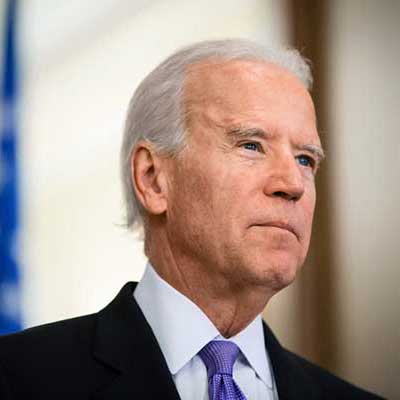A former aide to Jill Biden has expressed disapproval of former President Joe Biden’s decision to re-enter the national scene amid a period of declining approval ratings for Democrats and a decrease in President Donald Trump’s popularity.
Michael LaRosa, who once served as Jill Biden’s communications director, raised concerns about the timing of Biden’s public reappearance on Tuesday. The 82-year-old former president delivered his first post-presidency address, criticizing President Trump’s Social Security policies.
“I love both Bidens dearly, but staff loyalty means there is a responsibility to provide them with an honest situational awareness, especially when it comes to their public image, no matter how hurtful it is to hear,” LaRosa conveyed to the media on Saturday, April 19.
This critique arises during a challenging period for the Democratic Party, which is facing unprecedented internal dissatisfaction. Recent polls indicate confidence in Democratic congressional leadership has plummeted to 25%, significantly lower than the party’s average of 45%. The party’s overall favorability has decreased to 29%, compared to the Republican Party’s 36%.
LaRosa suggested that if the Bidens had advisors more attuned to current political sentiments, they would recognize the persistent discontent within the Democratic Party. He noted that advisors should be aware of the “intense level of anger or indifference to them that remains inside our party and isn’t going away anytime soon.”
Democratic strategist Brad Bannon echoed these concerns, highlighting Trump’s declining approval ratings amid economic challenges. Bannon stated that Biden’s return to the public eye offers Republicans an opportunity to shift blame for current issues, telling The Hill that “it’s a bad time for Biden to re-emerge and remind them of the bad old days.”
Numerous Democratic leaders are advising the former president to maintain a lower profile as the party seeks to rebuild after the 2024 election loss. Millions of people who voted for Biden in 2020 did not participate in the 2024 election, indicating significant voter disillusionment.
Biden’s withdrawal from the 2024 presidential race on July 21, 2024, was historic, making him the first incumbent president since Lyndon B. Johnson in 1968 to exit a reelection campaign. While some praised this decision, others within the Democratic party felt it was too late to improve their electoral prospects.
LaRosa expressed concern that Biden’s return could divert attention from current issues in the Trump administration, especially as the economy faces challenges under new tariff policies. He described the situation as “a heartbreaking and tragic ending to their time in public life,” while emphasizing the need for the Bidens to “index the political realities into their decision making.”
The Democratic party’s issues extend beyond the Bidens’ public presence. Party leadership is experiencing a confidence crisis among their own supporters, with only 63% of Democrats and Democrat-leaning voters viewing their party favorably, down from 81% at the start of Biden’s term. Additionally, 71% of voters indicate the party needs new moderate figures to lead it forward.
Younger Democratic figures like Representative Alexandria Ocasio-Cortez of New York are gaining prominence as the party searches for new leadership and direction. This generational shift is occurring as the party prepares for the 2026 midterm elections, which will be crucial for Democrats hoping to regain control of Congress.
According to Gallup polling, 54% of Americans expect that Biden will be remembered as a below-average or poor president, while 26% believe he will be viewed as average, and only 19% think he will be rated as outstanding or above average.
The former president’s legacy has been further complicated by his debate performance against Trump in June 2024, which raised widespread concerns about his age and health. These concerns contributed to the pressure from Democratic leaders for Biden to withdraw from the race and endorse Vice President Kamala Harris as the party’s nominee.
While President Trump faces his own approval challenges, averaging 45% in the first quarter of his second term—below the post-World War II presidential average of 60%—he maintains strong support within his party. Recent polls show that 89% of Republicans express confidence in Trump’s economic leadership, compared to just 25% for Democratic congressional leaders.

